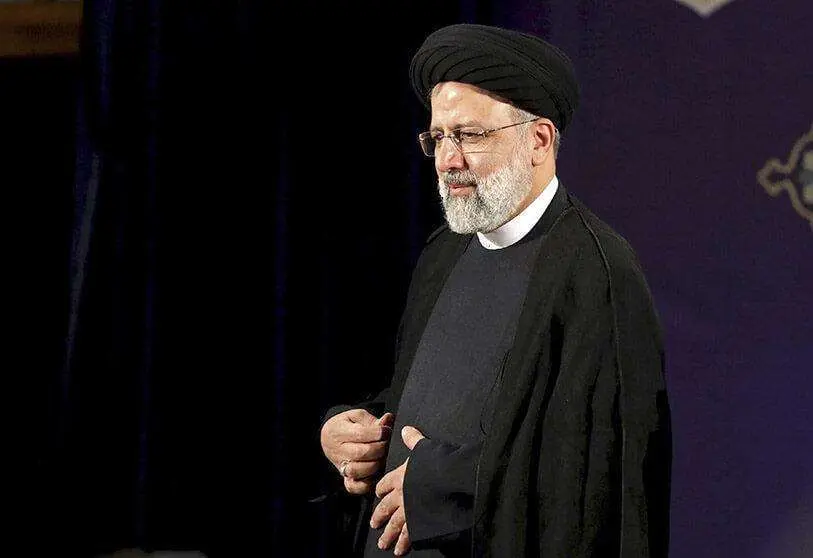Tough tests for a very green Raisi

In what is a travesty of democracy, however favourably it compares with neighbouring Arab monarchies, Ebrahim Raisi has been sworn in as president of the Islamic Republic of Iran. This is not good news, even if it was expected, and not only because of his truculent past as one of the judges who sentenced thousands to death in 1989 after Khomeini's revolution against the Shah and his corrupt regime, but also because he is taking office in a very complicated context, as it is always complicated in those geographies and because of what cannot be expected of him in principle.
A trusted confidant of Supreme Leader Ali Khamenei, who facilitated his election by removing any candidates who might have overshadowed him, Raisi was elected with 70% of the vote, although a low turnout (less than 50%) and a high percentage of invalid votes (14%) marred his pantomime. His repressive past and his proximity to the most hardline sectors of the Iranian regime seem to indicate that, as Nader Hashemi, director of the Center for Middle East Studies at the US University of Denver, has written, "Raisi's presidency means the rise and dominance of the military and the security apparatus of the Islamic Republic and the withdrawal of technocrats and moderate voices". This is not good news in a context dominated firstly by the US desire to accelerate its disengagement from the Middle East region as manifested in the withdrawal of troops from Afghanistan, secondly by the ongoing negotiation to allow the US to return to the Joint Comprehensive Plan of Action (JCPOA) from which Donald Trump unilaterally exited, and thirdly by the tension with Israel that has been growing in recent weeks.
If Biden intends to disengage from the Middle East to devote his attention and energies to Asia - and in particular China - I fear that Iran will not allow him to do so. Tehran cannot be insensitive to the power vacuum that the US withdrawal will produce this summer in Afghanistan after twenty years of war that has cost many lives (especially Afghans), much money and produced no concrete results. The
The regime in Kabul is in retreat, the Taliban are gaining more and more ground, traditional warlords are re-emerging in many places, and the country looks set to slide back into the chaos that is ingrained in it. Iran does not have the capacity of Russia and the US (and before that the British) to enter Afghanistan and be defeated as well, but it does have the capacity to favour its supporters (more on the Taliban side), and to create militias along the lines of those it already has in Syria and Iraq to defend its interests. And there is no doubt that it will do so.
Regarding the JCPOA, the optimism of a month ago that made Washington think that a new agreement was possible before Raisi took office has vanished. Iran wants to return to what was signed in 2016 with the lifting of all sanctions and a guarantee that the US will not abandon the treaty in the future, and no American leader can guarantee that. For its part, Washington wants to extend in time the clauses that prevent Iran's nuclearisation and also include provisions limiting the regional activities of the Revolutionary Guards and their ballistic missile programme. Iran is not on board and says it does not want to mix the wheat with the chaff. Negotiations are expected to be even more difficult under Raisi than under former President Rohani.
And then there is the tension with Israel, fuelled by a suicide drone attack on an Israeli oil tanker off the coast of Oman. Iran denies it had anything to do with the attack, but the Israelis do not believe that (nor do the Americans and the British), who know that Tehran wants to respond to the assassinations of its nuclear scientists, which it suspects were carried out by the Israeli Mossad. Nor can the new Israeli government afford to appear weak in the face of Iran's policy of accelerating uranium enrichment until an agreement is reached, which Tel Aviv opposes with all its might. All indications are that the tension between Israel and Iran will continue to grow in the short term and that it will be up to a still very green Raisi to manage it.
Jorge Dezcallar/ Ambassador of Spain.

